Through the Mojave with Diamond Jubilee
Cindy Lee's 32 track opus is a timeless, unyielding masterpiece that serves as the ultimate road trip companion. It has never hit me so fully as it did against the backdrop of a lonely desert highway.
Release Date: March 29, 2024
Label: Realistik
Produced By: Patrick Flegel, Steven Lind
This past June, I found myself in a situation I never had before: I missed a flight. But instead of rushing to book a new one, I leaned into the disruption and chose something different. I headed to the nearest Enterprise Rent-A-Car, grabbed the keys to a dusty, sun-bleached Chevy Malibu, and set off across the Mojave Desert from Las Vegas to Santa Barbara—all just so I could experience my favorite album of the 2020s in the way I’d long wanted to. I knew I would be barreling through 115+ degree heat until I made it to the Santa Clarita valley, but I didn’t care. I knew that gas in LA county was hitting $7 a gallon, and that a $40 plane ticket back to LAX would have been far more economical, but again, I didn’t care. From the very first time I heard Diamond Jubilee—Cindy Lee’s spectacular and otherworldly 32 track opus—I longed to experience it on an open road, the desert shrinking in my rearview, the Pacific shimmering somewhere beyond the mountains ahead. The sun hung low over the desert as I left the Enterprise lot, a haze of white heat lingering just above the freeway. After a quick stop at Dutch Bros Coffee for fuel of a different kind, I wrestled with the Malibu’s stubborn bluetooth settings. Twenty-five minutes later, as I heard the title track’s first surreal notes echo through the car speakers, I queued the album on repeat until the music felt as endless as the desert itself. Six hours of lonely highway loomed ahead, but all that mattered was heading west.
I’ll be honest and admit that I’d never heard of Cindy Lee before all the buzz and fervor surrounding this project broke earlier this year. I now know much more: Cindy Lee, the drag alter ego of Patrick Flegel, formerly of the Canadian indie-rock outfit Women, has always existed in a liminal space—part ethereal, part grounded, a shimmering figure at the crossroads of subdued indie rock and noisy experimentation. Flegel found success with their previous work in Women and other solo projects as Cindy Lee, skillfully blending shoegaze and indie pop into dreamy ballads that evoke the lush atmospheres of Beach House crossed with the raw intensity of MBV. After exploring Flegel’s previous discography, it’s clear that Diamond Jubilee stands in a league of its own, resembling an entire sonic universe more than it resembles a mere album. Flegel constructs their musical world with expert precision, where every detail in these songs is meticulously designed to evoke a sense of nostalgia for a past that may or may not have ever existed. Of the album’s behemoth 2-hour plus run-time, there literally isn’t a single track I would like to see cut on this thing: each moment flows effortlessly into the next, creating a cohesive experience where every second feels essential. There’s absolutely no fat to be trimmed—it truly is all killer, no filler.
I first came across Diamond Jubilee back in March, in much the same way I suspect most other chronically online music nerds did—through a cascade of glowing reviews from blogs and writers, all of whom seemed to share a unified reverence for its familiar, yet somehow still totally alien sound. The sentiment among music obsessives seemed almost unanimous: Diamond Jubilee had managed to capture the essence of a lost era, conjuring the spirit of mid-20th-century Americana and presenting it as if it had been rediscovered from a forgotten time, like an American songbook filtered through a dream of the past and imagined anew. I am a sucker for any modern music that is heavily steeped in nostalgia—one of my other favorite albums of all time is Panda Bear’s Person Pitch—so I knew based on the critics’ descriptions that this would be an album worth diving into. Like much of the rest of Cindy Lee’s discography, the album is not available on streaming (sorry fellow Zoomers), but you can download the tracks from Flegel’s Geocities website and upload them to Spotify as local files. After previewing the full album on Youtube here, I decided that I absolutely needed to carve out time to download and organize these tracks so I could listen to them offline. I’m telling you that I haven’t been the same since.
CALIFORNIA STATE LINE — ROAD TO NOWHERE — ROAD TO EVERYWHERE
The first part of my drive was framed by hazy, distant mountains that, under the soft glow of the morning sun, blurred into the horizon until they were nearly indistinguishable from the sky. Barreling down the Nevada portion of I-15 toward Death Valley, it struck me that the desert’s allure lies in its sheer defiance of the ordinary. Nothing normal survives here, yet what does survive feels like it belongs to another world. This may be precisely the reason why Diamond Jubilee is so perfectly experienced in a place like this. I’ve seen many music critics (Fantano, Paste, Pitchfork, etc) liken this record to a transmission from a parallel dimension, one where you can’t tell if the voices you’re hearing are echoes from the past or whispers from the future. It’s easy to get absolutely lost in this album, not just because of its length, but because of the way it utterly bends time, like some buried jukebox that’s found its way back from the past and crashed into our modern, anxious existence.
Throughout the first disc, shuffle beats and 60s pop mingle with tremolo-laden guitars, while Flegel’s delicate falsetto, drenched in reverb and cloaked in a mysterious haze, floats above it all, like a faint radio signal from somewhere out there in the desert, barely cutting through the static. Maybe it’s being broadcast from the coast, getting jumbled up as it travels with the wind through the Sierras? Who knows for sure, but hearing the opening minute of the title track perfectly captures the feeling that this just might be true. At first, the vocals are too muffled to decipher, but it’s as if the closer you get to the California state line, the words suddenly sharpen into clarity. In an instant you can clearly make out Flegel’s falsetto: “In the diamond’s eye, shining down on me / a single memory / and it’s of you.” I was alone then in the vast Mojave, the sun scorching the Earth outside, the promise of the ocean’s cooling presence hundreds of miles away. But there was peace that came from being right there, right then, among the nothing.
There are so many of these magic moments on the first disc. The next track, “Glitz”, is a wild-west thumper that feels ripped straight from a John Wayne movie: bold, cinematic, and dusted with a grit characteristic of a high-noon showdown. The song ends with an equally Western-sounding but comparatively subdued guitar riff, seamlessly flowing into the wistful melancholy of “Baby Blue”. Longing is a central theme throughout the album’s first half, with some tracks conveying a sense of melancholy so viscerally that you may feel like pulling over to catch your breath. “Dallas” and “Wild One” are utterly gorgeous tracks that evoke this specific sense of longing, their expansive soundscapes fully realized within the vastness of the desert. Much like the American West, all of the music on this record feels so open and spacious that, as you listen, you can’t help but feel infinitely small within it.
Despite these existential moments within Cindy Lee’s sonic world, there are lighter moments, too. The recurring guitar licks in "Kingdom Come" in particular are absolutely stunning—swirling mixes of shimmering psychedelia and razor-sharp precision that feel quintessentially like sunlight, equally warm and immense. During my first few run-throughs of the album, “Kingdom Come” quickly became an early favorite, one I couldn’t wait to take with me on the road. When the moment finally came, it sounded more alive than ever, each chord and vocal flicker sparkling like sunlight dancing on the asphalt. The next track, “Demon Bitch”, introduces a mix of twangy, cowboy-inflected guitars and deep shoegaze fuzz that culminates in one of the most beautiful acoustic send-offs on the entire album. Later still on the first disc, “Realistik Heaven” floats in, and when it does, it feels like an ascension. The sun was high above the desert when I first heard this song along my journey west, but the rising strings kept me grounded even as they soared. “Realistik Heaven” is as close to pure, unfiltered beauty as anything I’ve ever heard—a literal heaven captured in sound.
A PLACE BETWEEN WORLDS — A PLACE THAT FEELS LIKE ASCENDING
Of the many standout moments on the album’s first half, one track I especially looked forward to during my drive was “Flesh and Blood”, a slow-burning banger that epitomizes everything Flegel does best on Diamond Jubilee. The first time it played, I was somewhere west of the California border, the jagged mountains in the distance cutting into the horizon like the serrated edge of a dream. There’s a sense of propulsion and raw energy in this song that feels like lightning in a bottle, almost miraculous in its perfection, as if it shouldn’t be possible to capture something so raw and unrestrained in the studio. It’s one of the album’s few moments where the noise threatens to overtake you, but even then, it’s more of a slow burn rather than a full blaze. The motorik beat thumps steadily, like the pulse of the desert itself—constant, expansive, endless. Wanting to fully immerse myself in this moment, I opened both the front and back windows and let the desert heat pour all over me.
“Flesh and Blood” is a rich soundscape that taps into everything I’ve ever loved about music: those hazy, half-remembered moments from rock-and-roll’s golden age, those stadium-sized drum beats and overblown guitars. But perhaps what’s most amazing about this track is actually the way it abruptly ends, giving way to “Le Machiniste Fantome”, a haunting interlude that feels like it’s being played directly to the ghosts of the Frontier themselves. On paper, these two tracks couldn’t be more different, but in the moment, they feel inseparable, as if neither could fully be itself without the other. That Flegel manages to pull off such a maneuver is impressive in itself, but the ease with which they do so showcases the album’s next-level cohesion. This cohesion and consistency exists throughout the album’s entire runtime. It’s nothing short of spectacular.
If disc one masterfully conjures this feeling of longing bathed in a shimmering, sunlit haze, disc two accomplishes the same while feeling like its rawer, more nocturnal counterpart, especially on tracks like “Dracula” and “Lockstepp”. The shift between the two almost feels to me like the slow transition from day to night—a cooling off, a quiet deepening. I took a break from the album to chat with a friend who had called as I made my way across California. What began as a 20-minute check-in soon transformed into one of our regular 2-hour life catch-ups, the miles passing on the road as I meandered through Joshua trees and ocotillo shrubs. When we ended the call and I returned to Diamond Jubilee, it was disc 2 that now accompanied me for the second leg of my journey, now more than halfway through the Golden state. The desert still stretched endlessly around me, but something had changed. The Pacific felt closer here, reflected by the patches of green that were beginning to dot the landscape. I wondered if the desert animals too could sense its presence, that somewhere in the distance an ocean was waiting, vast and eternal.
Disc two continues this streak of serving all killer, no filler, with tracks like “Stone Faces” and “If You Hear Me Crying” providing energy, more falsetto, and more butter-smooth guitar licks. "Government Cheque" is one of the album’s most dynamic moments, its shifts in tempo and tone conjuring up a sense of constant motion. The track hits a thrilling point in the chorus where the floor tom fades into a low, droning bass line, blending a lush, oversaturated texture that feels like it’s melting into the scenery outside. It’s a track that captures the feeling of momentum—of speeding up, spinning out—yet remaining tethered by a thread of control. By the time it reaches its climax, it feels like the track itself is a microcosm of what the full album represents: a winding odyssey, exhilarating and deeply emotional. "Darling of the Diskoteque" is one of those tracks that literally feels like it’s been plucked straight from another era, a glitzy, neon-lit fever dream of a song that would be just as at home in a '70s nightclub as it is in the expansive world of Diamond Jubilee. The song struts forward with a kind of swagger, yet beneath its surface, there’s a melancholic undercurrent that makes it sound like a winding down at the end of the night, when the bar lights turn on and the party’s over.
There’s something hauntingly intimate about "What’s It Going to Take,” one of the album’s more introspective tracks that is fittingly placed near the end of disc two. It’s a song that seems to ask more questions than it answers, suspended in its own uncertainty. Each time it played on my drive, I thought about how the echoing background vocals—“midnight… two o’clock… four o’clock… twilight”—felt like an auditory sundial, marking the passage of the sun across the desert sky. By the second listen, I was already deep into the Santa Clarita Valley, and the landscape was transforming: lush green mountains now took the place of the rugged desert monoliths, and palm trees began to line the freeway. Cars had returned to the roads now, the air grew cooler and less oppressive. The Pacific was no longer just a promise anymore—its presence was now undeniable.
THE MAJESTIC 101 — NORTHBOUND TOWARD SANTA BARBARA — SOMETIME IN THE NOT-SO-DISTANT PAST
By the time I made it fully through the mountains and back to the coast, I remember listening to the final track, “24/7 Heaven”, on my second full run-through of the album. It felt fitting to hear this track now as I drove north toward Santa Barbara, the glimmering sea no longer hundreds of miles away but now just a few hundred feet to my left. I parked at an overlook off the 101 just north of Ventura to take in the surroundings, my driver’s side window open toward the endless expanse of the ocean, and again felt like I was ascending. Waves crashed onto the shore as violins cascaded down like sunlight filtering through clouds. It was one of those moments where, if real life were a video game, I’d be frantically trying to save my progress before the battery ran out, just so that I could return to that exact moment no matter what happened next. A moment so perfect that it demanded reflection. How did I get here? Lately, I’ve found myself asking that question more often. And each time I do, I try to remind myself that while there’s always joy in reaching the end of a long road, true peace comes from surrendering to wherever it takes you.
…
My love and fascination for Diamond Jubilee has only deepened since that desert drive. Throughout 2024, this record has remained my travel companion as I’ve navigated through different cities as a fourth-year medical student, transforming packed New York City subways and deadlocked Philadelphia traffic jams into wide open roads—roads where desert hills fade away in my rearview and the promise of the Pacific is always just beyond the horizon. Listening to Diamond Jubilee transports me back to that liminal place between worlds, that place that feels like ascending. Of all the new music that has been released during my twenties, this is the singular album that I would choose to soundtrack my personal journey. It perfectly captures the beauty of wandering, of not having all the answers but finding meaning in the search itself. It’s an ethos for all of us navigating life like an open road, still hoping that somewhere out there, on some quiet and lonely stretch of highway, we might finally find what we’ve been looking for.
Listen to the album here as it was meant to be heard—in its entirety. Or head to Cindy Lee’s Geocities site where you can download the tracks and experience them somewhere on an open road yourself.
Thanks for reading.
Diamond Jubilee (Disc One)
Diamond Jubilee
Glitz
Baby Blue
Dreams of You
All I Want Is You
Dallas
Olive Drab
Always Dreaming
Wild One
Flesh and Blood
Le Machineste Fantome
Kingdom Come
Demon Bitch
I Have My Doubts
Til Polarity’s End
Realistik Heaven
Diamond Jubilee (Disc Two)
Stone Faces
Gayblevision
Dracula
Lockstepp
Government Cheque
Deepest Blue
To Heal This Wounded Heart
Golden Microphone
If You Hear Me Crying
Darling of the Diskoteque
Don’t Tell Me I’m Wrong
What’s It Going to Take
Wild Rose
Durham City Limit
Crime of Passion
24/7 Heaven
If you liked this piece, consider subscribing to my Substack. You’ll get short and long form stuff like this about all the music I’m digging whenever I have time to write. It’s completely free and future stuff will get sent straight to your email. You should do it.
*Disclaimer: I did not take these photos, I found them all on Google




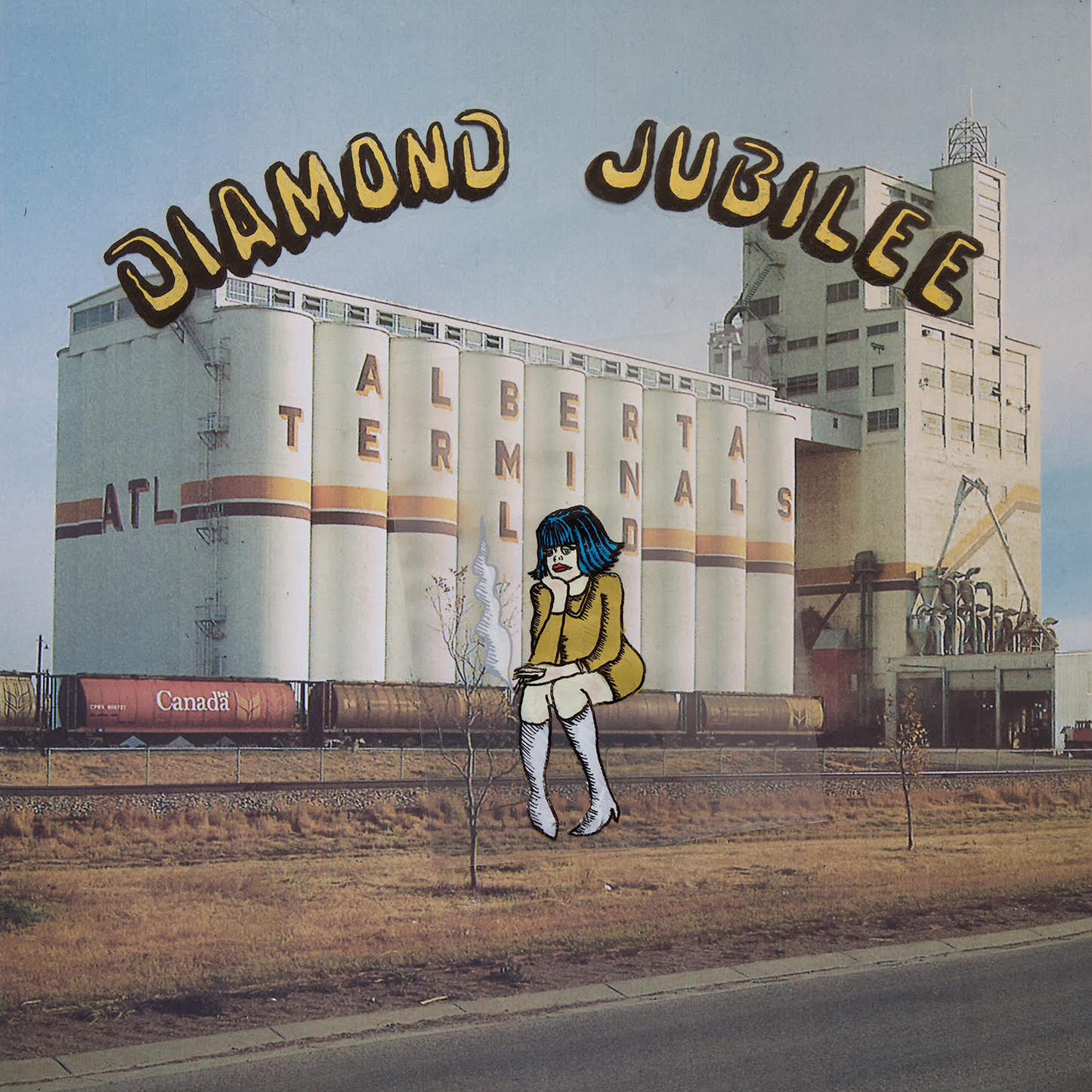
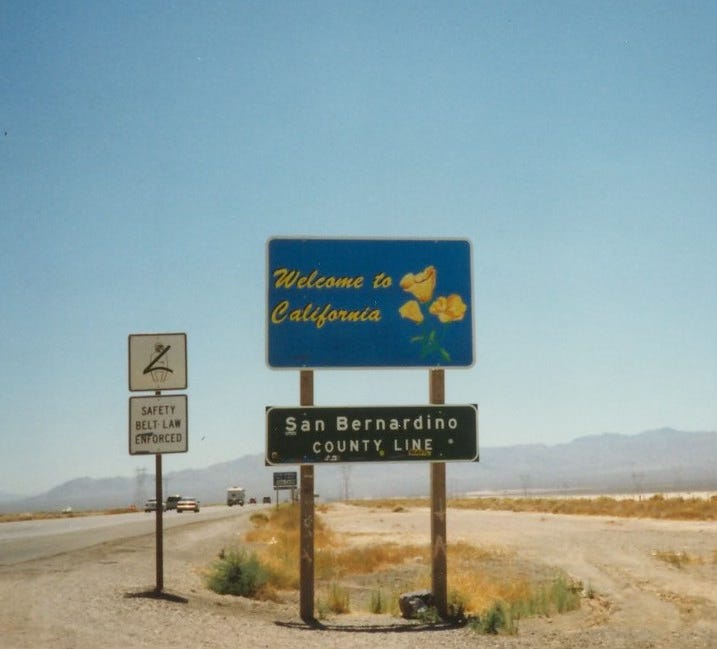
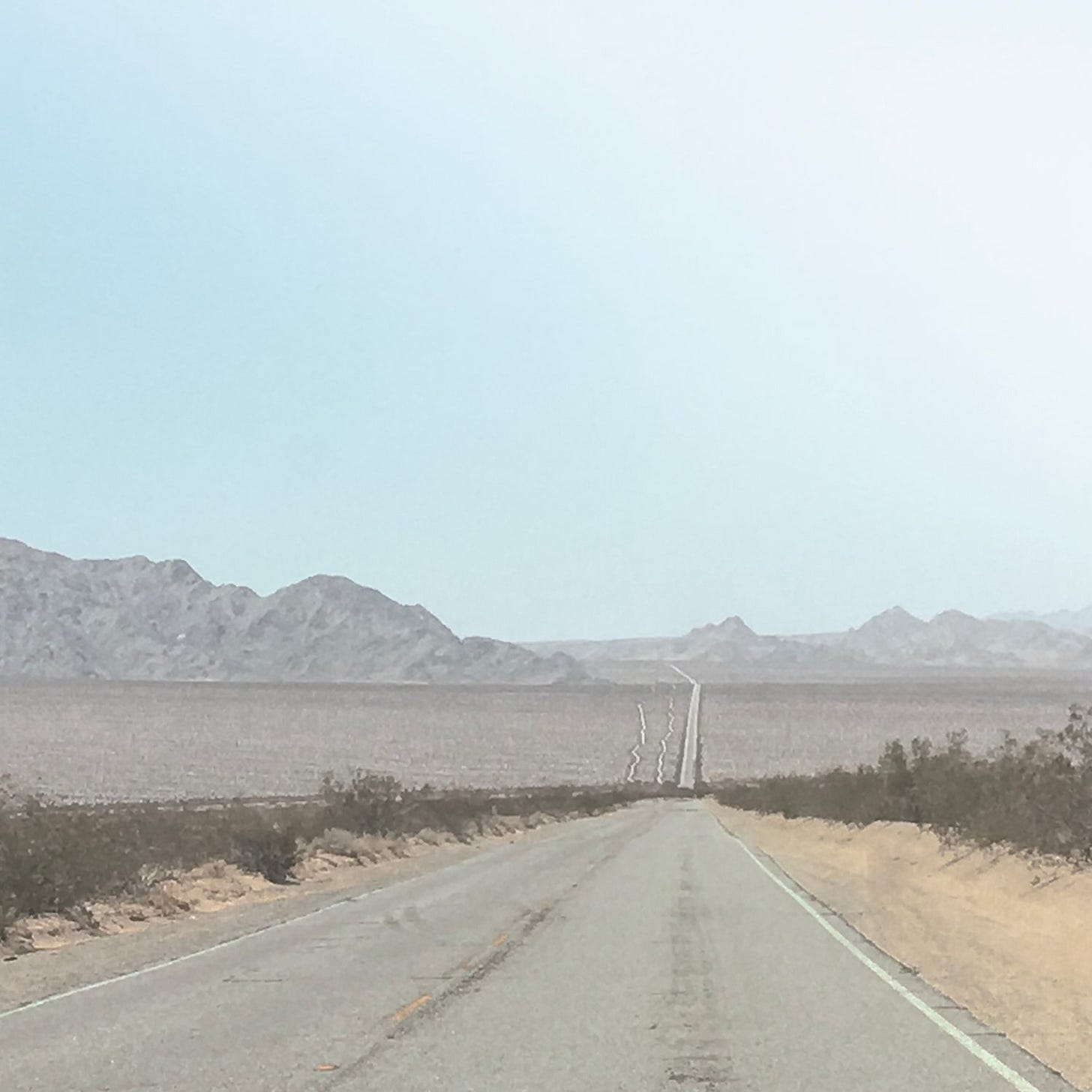
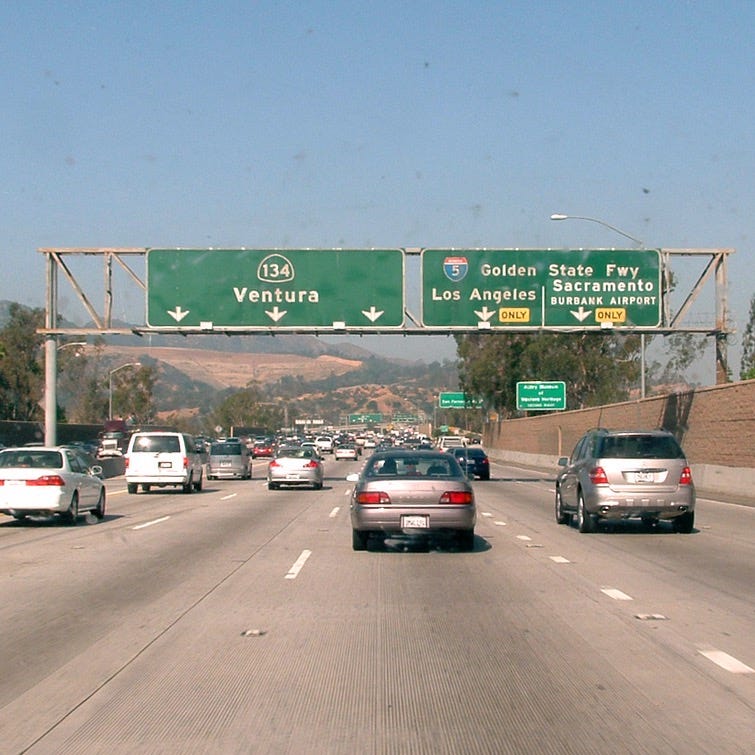
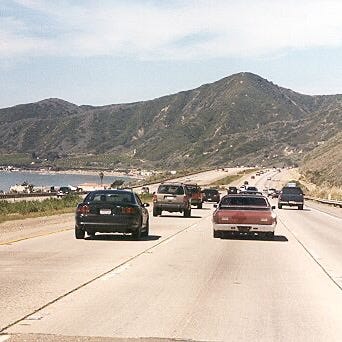
Terrific read. We share similar thoughts on this masterpiece. Now I need to plan a roady the length of New Zealand with out the family to bath in this audio nirvana.
Thanks for the read